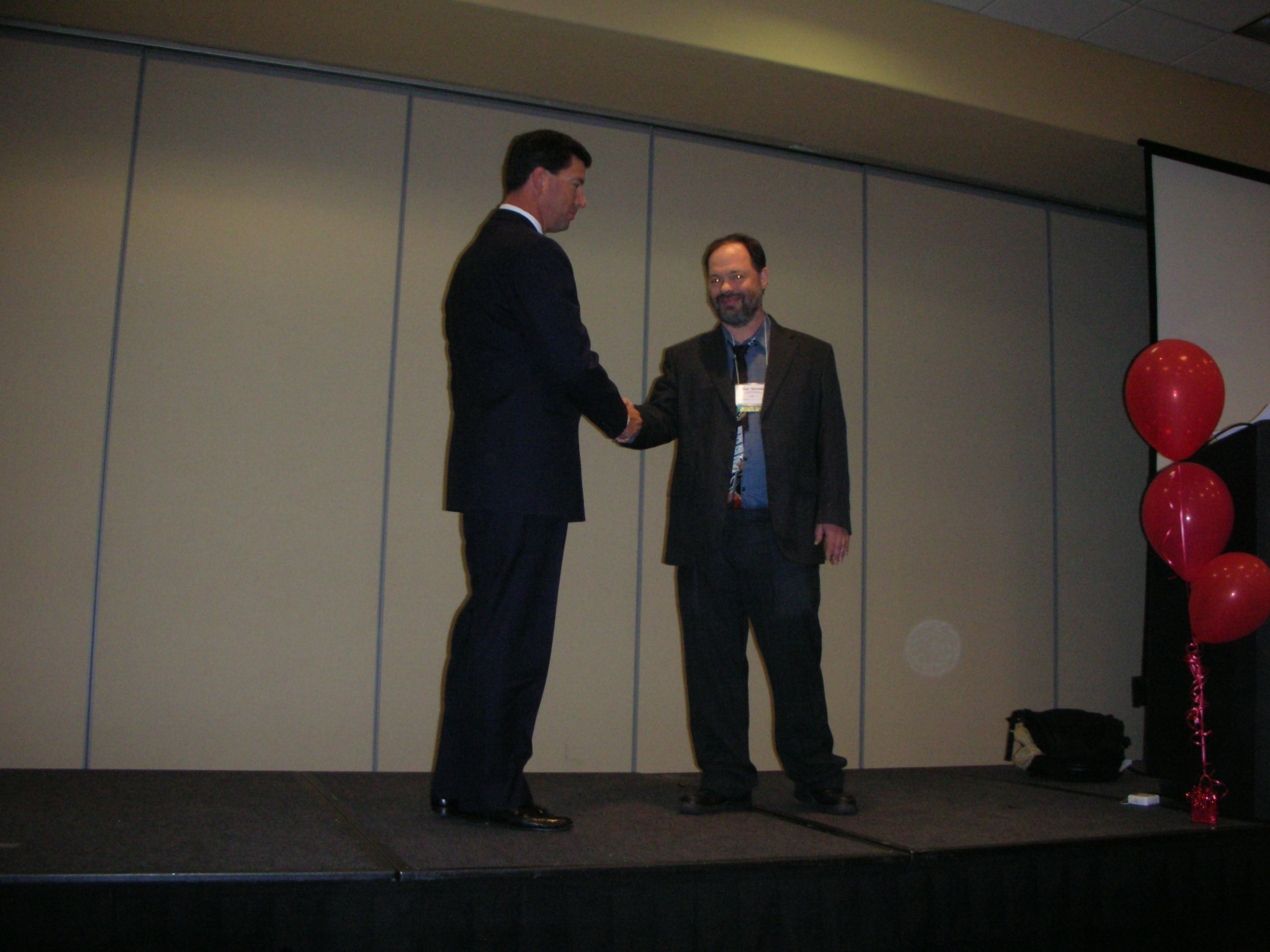Reasonably priced, environmentally responsible, data-secure service for getting rid of techno-junk. I’d try Freecycle.org first, since my junk may be someone else’s treasure–but this looks like a good fallback.
The FAQ page notes,
We refurbish what we can and recycle the rest. Inkjet cartridges get remanufactured and, when possible, cell phones and some computers get refurbished. Material that has no further operating life is broken down to its smallest components (metals, plastics, etc.) and used in the manufacturing of new products. Unlike some recycling companies, all of the material that GreenDisk collects is reused or recycled. No hazardous materials or obsolete components go overseas to be processed or disposed of.
It also discusses the risks of improperly-disposed, insecure data, and the steps it takes to eliminate that risk.
And this is a socially responsible company that chases away business if there’s a more eco-friendly solution available:
You should not use GreenDisk if there is a local drop-off that legitimately recycles your equipment. We believe this service should be offered in your local area to conserve energy and be more cost effective. Unfortunately, businesses in most local areas have not stepped forward. So, we started this service at the request of those who had no local vehicle to recycle their equipment.
I find the information on GreenDisk’s About page very cool: the firm was founded on Earth Day, 1993, originally to help software companies dispose of unsold software. With its commitment to sustainability, GreenDisk went around forming partnerships with existing recyclers–and with nonprofit agencies that employ workers with disabilities–around the country, rather than building new capacity.
Materials that Greendisk recycles are turned into Green office products: Diskettes and CD-RWs, CD packaging, technotrash collection stations (how’s that for a closed loop!). I had to wonder, though–who’s actually still buying diskettes?
In fact, I wondered enough that I picked up the phone. It was answered on the first ring by none other than David Beschen, President and Founder; he says all six employees answer the phone. I asked who buys floppies these days. It turns out the military and other government agencies still buy them–and NASA even still buys 5-1/4 inchers.
For up to 30 pounds of non-computer “technotrash,” e.g., CDs, cords, mice, cell phones, and printer cartridges, just $6.95. Disposal of entire computers, including wiping the data beyond recovery and recycling what components can be recycled, starts at $19.95. The largest job the company handled filled 26 railroad freight cars; the smallest was a single DVD. Rechargeable batteries are acceptable; alkaline, unfortunately, are not–but the company is working on it. “It isn’t that they can’t be recycled, but that it’s extremely expensive,” Beschen told me. “But we’re working on that.”
Since I had him on the phone, I conducted a brief interview:
SH: How do you get people not to just throw electronic parts away.
DB: There’s a huge segment that does want to recycle, and we make it more convenient. They just don’t know what to do with the stuff. We’re not missionary with people who don’t want to recycle, but the general conversations are starting to bring more people to realize [that proper disposal is important]. If you go back in our culture, we didn’t throw stuff away. Planned obsolescence is a relatively recent, and that mentality is changing. We have cars now that don’t need a tune-up for 100,000 miles, instead of rusting hulks in a junkyard.
SH: How are you different?
DB: One of the key rules of environmentalism is don’t make it [if you can use something already in existence]. We use resources already in existence, including postal trucks that would otherwise come back empty. We’ve asked nonprofits that employ people with disabilities [to do the work]; they have 70 percent unemployment: those are two huge resources. Now we’ve integrated FedEx, and less-than-load tactics with all the trucking companies, so we can move stuff without making a special trip. And we can get work done without taking it offshore. To make the diskettes, we bought down-time from people who make the software. And companies will pay a premium for recycled materials.
SH: Is this type of cooperation unusual?
DB: I’m the former head of corporate communications for Microsoft. The software producers were doing all kinds of joint ventures, sharing information that marketing people would have killed each other for disclosing. I said, “do your marketing people know?” It wasn’t a conspiracy, for once. I come from the marketing world. When you create a soluton for people, you’re marketing. Companies that think only of themselves don’t tend to perform well over time.


